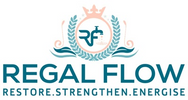Ever taken a sip of tap water and thought, “hmm, that’s… interesting”? If your water tastes odd, smells funky, or leaves stains and scale, you probably need a Whole House Filter. Stick around—we’ll cover the signs, perks, and the Decision Making & General Information you should know before buying.
A Checklist to Determine Your Need for a Whole House Water Filter UK
Not sure if you really need a whole house water filter? You’re not alone. Many UK homeowners assume their tap water is “fine” until kettles crust up, showers leave skin dry, or tea tastes oddly chemical. A quick inspection around your home can tell you more than you think. This checklist walks you through visible warning signs, the role of professional water testing, and the peace of mind that comes from investing in clean, safe water for your whole home.
The Visible and Tangible Signs of Poor Water Quality
Water That Smells or Tastes Like Chlorine
Ever poured a glass of tap water that smelled like a swimming pool? That’s chlorine. UK water companies use it as a disinfectant, but it often lingers long after treatment. If your tea, coffee, or tap water has a sharp chemical tang, that’s your sign. An activated carbon whole house water filter UK is designed to reduce chlorine and its by-products. The result? Fresher, cleaner-tasting water at every tap.
Sediment or Rust in Your Water
Notice tiny particles floating in your water, or maybe a faint orange tint in the bath? That’s usually sediment or rust from ageing pipes, or disturbance in the water mains.
Whole house sediment filters are built to trap grit, rust, and dirt before it reaches your kettle, washing machine, or dishwasher. Catching these particles early not only improves taste but protects your appliances from costly wear and tear.
Limescale Buildup (a Sign You May Need a Softener)
If your kettle has chalky white rings, your taps are crusty, or your shower glass never stays clear, you’re dealing with hard water. Hard water isn’t harmful to drink, but it wreaks havoc on plumbing, boilers, and skin. While a standard filter can catch some minerals, only a water softener system removes calcium and magnesium — the real culprits of limescale. For many homes in the South East and Midlands, a filter-and-softener combo is the winning solution.
Do I Need a Water Filter in My Home? Testing Your Water
Visible signs are a good start, but they don’t tell the full story. To really know what’s in your water, testing is essential.
The Importance of a Professional Water Test
DIY water test kits can highlight pH, hardness, and chlorine, but they’re limited. A professional lab test, however, provides certified results on a wide range of contaminants. This includes heavy metals (like lead and mercury), nitrates from fertilisers, and biological nasties like bacteria.
Armed with these results, you’ll know exactly which type of whole house water filtration system your home needs — no guesswork, no wasted money.
What a Water Test Can Reveal About Your Water Quality
A detailed test can uncover:
-
Levels of hardness (calcium and magnesium)
-
Chlorine or chloramine content
-
Heavy metals such as lead or iron
-
Nitrates and pesticides
-
Microbial contamination (E. coli, giardia, cryptosporidium)
This isn’t just academic. It’s a health and lifestyle issue. Knowing what you’re drinking and washing with makes choosing the right filter much simpler.
The “Peace of Mind” Factor
For many families, installing a filter isn’t just about solving a visible problem. It’s about reassurance.
The Benefit of Knowing Your Family’s Water Is Clean and Safe
Every day, you use water for cooking, bathing, cleaning, and making hot drinks. When you’re confident that every drop is safe and clean, life feels easier. Parents filling baby bottles, homeowners worried about appliance lifespan, or anyone tired of chalky tea stains — they all share one motivation: peace of mind. Whole house water filters don’t just improve taste and odour, they create a consistent standard of quality across your entire home.
Conclusion: When to Invest in a Whole House Water Filter
So, do you need a water filter in your home? If you’ve spotted unusual tastes, smells, limescale buildup, or sediment, the answer is probably yes. But the smartest step is still to test your water quality at home (ideally via a professional lab). With results in hand, you can match the right system to your actual needs — whether that’s a sediment filter, carbon filter, or water softener. The payoff is fresher-tasting tea, longer-lasting appliances, fewer plumbing headaches, and the everyday comfort of knowing your family’s water is safe. A whole house water filter UK isn’t just about fixing problems — it’s about future-proofing your home. And once you experience the difference in taste, clarity, and peace of mind, you’ll wonder why you didn’t fit one sooner.
🔍 Every home is different, let us find the right Whole House Filter for yours. Reach us by phone on 0121 630 1130 or through the green WhatsApp icon.
More Whole House Filter advice worth reading
How Much Should It Cost to Install a Whole House Water Filtration System?
What Are the Disadvantages of a Whole House Water Filter?
What Size Whole-House Water Filter Do I Need?
Is It Safe to Drink Tap Water with a Whole House Water Filter?
Do Whole House Water Filters Slow Down Water Flow?
How Does Water Flow Through a Whole House Water Filter?
What Are the Problems with Whole House Water Filtration Systems?



Leave a comment